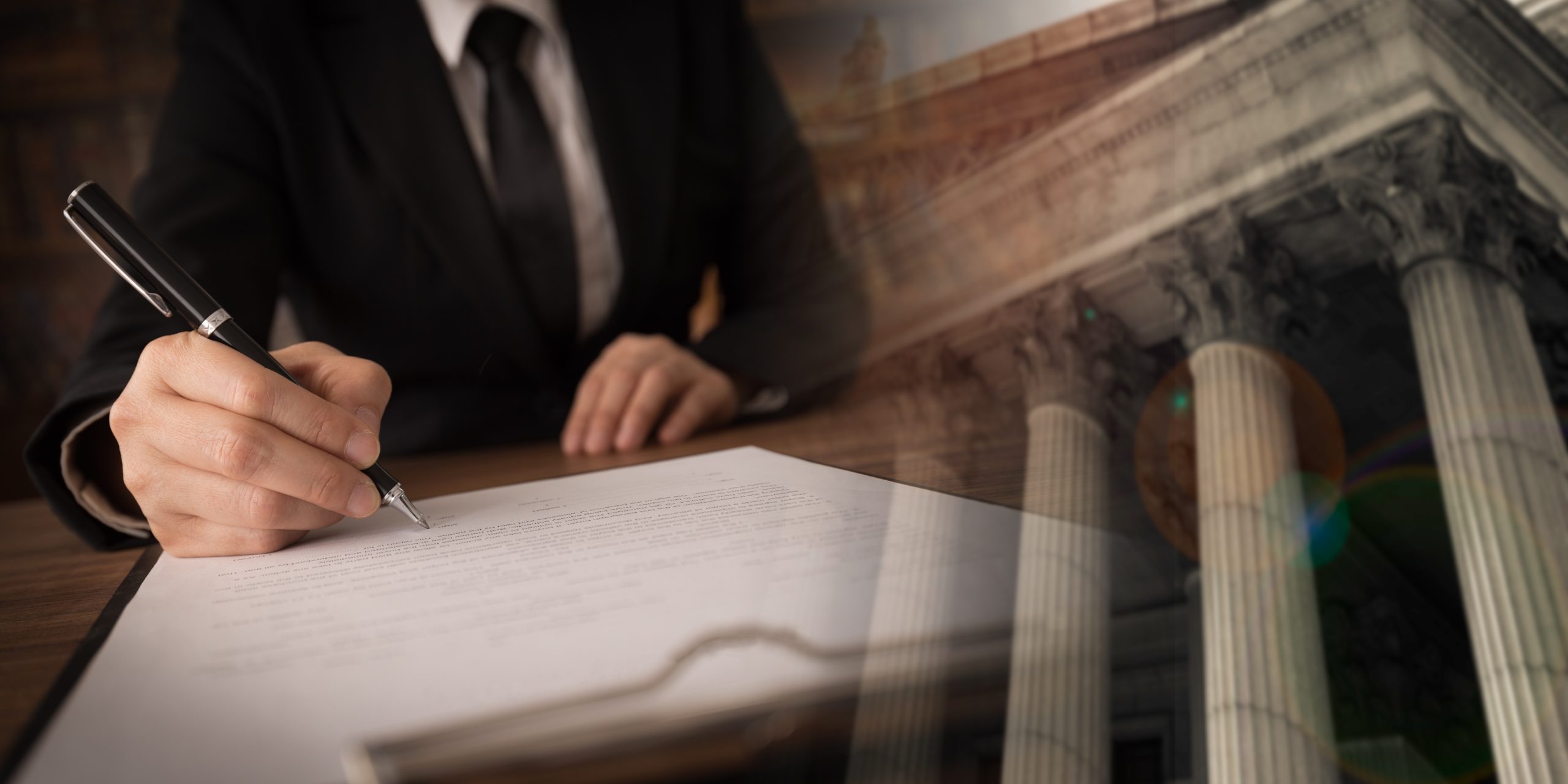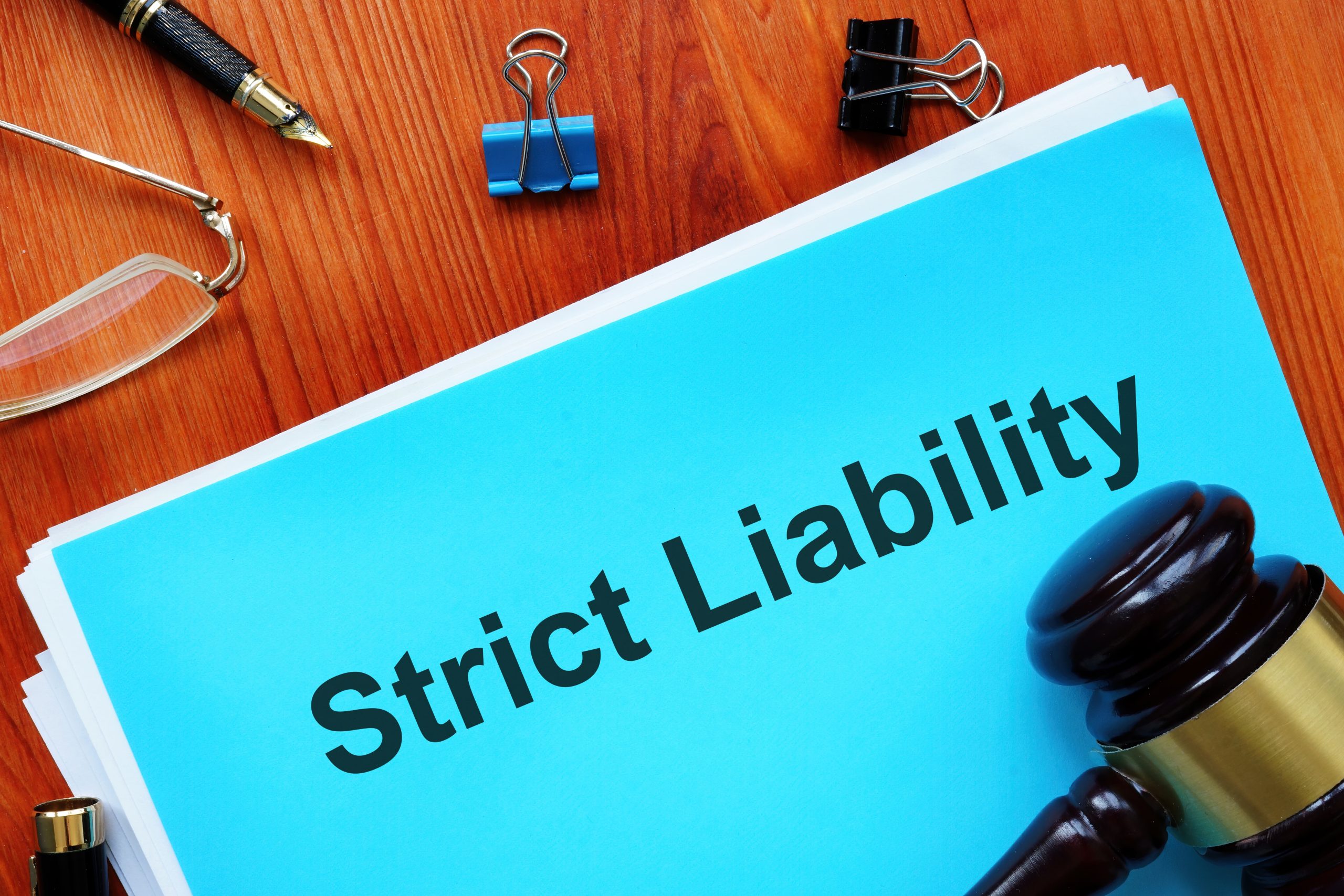The Litigation Process
 After suffering devastating injuries in any type of accident, you are likely feeling helpless and overwhelmed. If another’s carelessness or irresponsibility caused your injuries, you might be eligible to pursue a personal injury lawsuit. The Dietrich Legal Team’s veteran litigators realize that the litigation process may seem both complex and intimidating. Our lawyers believe that by helping you better understand the legal process, we can eliminate most of your stress and uncertainty.
After suffering devastating injuries in any type of accident, you are likely feeling helpless and overwhelmed. If another’s carelessness or irresponsibility caused your injuries, you might be eligible to pursue a personal injury lawsuit. The Dietrich Legal Team’s veteran litigators realize that the litigation process may seem both complex and intimidating. Our lawyers believe that by helping you better understand the legal process, we can eliminate most of your stress and uncertainty.
Steps In The Personal Injury Litigation Process
Although no two claims are identical, each lawsuit filed in New York Supreme Court follows the same steps as it advances through the litigation process. The actions that the Dietrich Law Firm P.C.’s highly experienced attorneys will take include:
 Buffalo Personal Injury Lawyer News
Buffalo Personal Injury Lawyer News


 Each year, over 10 million victims are treated in emergency departments nationwide for home-related injuries. Fortunately, almost every homeowner carries insurance, and many tenants maintain renter policies. This type of insurance shields residential property owners against personal liability when someone else suffers bodily harm or property damage in an accident caused by the homeowner’s negligence. While homeowner’s insurance is typically regarded as protection against property damage, these policies also provide crucial liability coverage for guests’ injuries.
Each year, over 10 million victims are treated in emergency departments nationwide for home-related injuries. Fortunately, almost every homeowner carries insurance, and many tenants maintain renter policies. This type of insurance shields residential property owners against personal liability when someone else suffers bodily harm or property damage in an accident caused by the homeowner’s negligence. While homeowner’s insurance is typically regarded as protection against property damage, these policies also provide crucial liability coverage for guests’ injuries.  When you hire a personal injury attorney to litigate your accident case, knowing that you have certain rights as a client is crucial. Strict standards of ethical and professional responsibility bind personal injury lawyers. The relationship between an attorney and their client should be based on confidence and trust. At the Dietrich Law Firm P.C., our battle-tested litigators believe in building strong relationships with our clients. We take the attorney-client relationship exceptionally seriously and are dedicated to treating every client with the respect, consideration, and compassion they deserve.
When you hire a personal injury attorney to litigate your accident case, knowing that you have certain rights as a client is crucial. Strict standards of ethical and professional responsibility bind personal injury lawyers. The relationship between an attorney and their client should be based on confidence and trust. At the Dietrich Law Firm P.C., our battle-tested litigators believe in building strong relationships with our clients. We take the attorney-client relationship exceptionally seriously and are dedicated to treating every client with the respect, consideration, and compassion they deserve.  Although most personal injury lawsuits depend on proving negligence, there are certain cases where plaintiffs do not need to show that the defendant was negligent. Strict liability, also called absolute liability, is a legal doctrine that holds a person or entity responsible for a victim’s injuries, even if that party was not negligent or at fault. In cases involving strict liability, defendants can still be held accountable even if they exercised reasonable care.
Although most personal injury lawsuits depend on proving negligence, there are certain cases where plaintiffs do not need to show that the defendant was negligent. Strict liability, also called absolute liability, is a legal doctrine that holds a person or entity responsible for a victim’s injuries, even if that party was not negligent or at fault. In cases involving strict liability, defendants can still be held accountable even if they exercised reasonable care.  Although the last thing anyone wants is to be the victim of an accident, mishaps are part of life. To better safeguard you and your loved ones, it is imperative to be aware of the most prevalent types of accidents. Below, the Dietrich Law Firm P.C.’s team of personal injury lawyers has listed the most frequently occurring accidents along with crucial tips to avoid them:
Although the last thing anyone wants is to be the victim of an accident, mishaps are part of life. To better safeguard you and your loved ones, it is imperative to be aware of the most prevalent types of accidents. Below, the Dietrich Law Firm P.C.’s team of personal injury lawyers has listed the most frequently occurring accidents along with crucial tips to avoid them:  Suppose that you, or a family member, have been injured in an accident caused by another person’s negligence or recklessness. You may be able to file a personal injury lawsuit. Pursuing a case against the responsible party could be your only means to recover compensation. However, you only have a limited time to file your claim. The deadline is known as the statute of limitations (SOL). The statute of limitations, like a countdown, can significantly impact when or even if you can pursue your case. Regardless of the strength of your claim, when the statute of limitations runs out, your case will be considered time-barred. Meaning the defendant can assert that the statute of limitations has run out and ask the court to dismiss the lawsuit on that basis alone.
Suppose that you, or a family member, have been injured in an accident caused by another person’s negligence or recklessness. You may be able to file a personal injury lawsuit. Pursuing a case against the responsible party could be your only means to recover compensation. However, you only have a limited time to file your claim. The deadline is known as the statute of limitations (SOL). The statute of limitations, like a countdown, can significantly impact when or even if you can pursue your case. Regardless of the strength of your claim, when the statute of limitations runs out, your case will be considered time-barred. Meaning the defendant can assert that the statute of limitations has run out and ask the court to dismiss the lawsuit on that basis alone. Suppose you or a loved one have suffered devastating injuries in an accident caused by someone else’s negligence. In that case, you must understand all of the legal options available to recover damages. Although accident victims have the right to take their injury claims to court under New York law, most lawsuits get settled without going to trial. Contrary to what most people think, only about 3 percent of all cases go to court.
Suppose you or a loved one have suffered devastating injuries in an accident caused by someone else’s negligence. In that case, you must understand all of the legal options available to recover damages. Although accident victims have the right to take their injury claims to court under New York law, most lawsuits get settled without going to trial. Contrary to what most people think, only about 3 percent of all cases go to court.  Being the victim of an accident can be an extremely traumatic event, especially if you have suffered injuries, property damage, or other significant losses. Even seemingly minor accidents can have disastrous repercussions, such as life-long disabilities, permanent disfigurements, complete paralysis, and traumatic brain injuries. Since most accidents are unpredictable and transpire with little to no warning, victims are usually uncertain about their next steps. The last thing any accident victim wants to worry about is filing the proper forms. With a highly experienced personal injury attorney, the legal process after an accident does not have to be overwhelming.
Being the victim of an accident can be an extremely traumatic event, especially if you have suffered injuries, property damage, or other significant losses. Even seemingly minor accidents can have disastrous repercussions, such as life-long disabilities, permanent disfigurements, complete paralysis, and traumatic brain injuries. Since most accidents are unpredictable and transpire with little to no warning, victims are usually uncertain about their next steps. The last thing any accident victim wants to worry about is filing the proper forms. With a highly experienced personal injury attorney, the legal process after an accident does not have to be overwhelming.  Suppose you have been seriously injured in an accident because of another’s wrongdoing. You may be eligible to pursue monetary compensation through a personal injury lawsuit. However, to hold the other party financially liable for your damages, you must first prove that they were negligent. Understanding the legal elements of negligence can help you win your Buffalo, New York injury claim.
Suppose you have been seriously injured in an accident because of another’s wrongdoing. You may be eligible to pursue monetary compensation through a personal injury lawsuit. However, to hold the other party financially liable for your damages, you must first prove that they were negligent. Understanding the legal elements of negligence can help you win your Buffalo, New York injury claim.  Victims suffer injuries in tens of millions of severe accidents every year, such as slips and falls, collisions, and dog bites. Most of these injuries are caused by someone else’s negligence or even recklessness. The consequences of being involved in an accident can range from serious personal injuries and post-traumatic stress disorder to the destruction of property and costly hospital bills. Over 40 million accident victims require medical care due to various personal injuries each year. If you or a loved one have been injured due to someone else’s negligence, you may be wondering what type of lawyer to call.
Victims suffer injuries in tens of millions of severe accidents every year, such as slips and falls, collisions, and dog bites. Most of these injuries are caused by someone else’s negligence or even recklessness. The consequences of being involved in an accident can range from serious personal injuries and post-traumatic stress disorder to the destruction of property and costly hospital bills. Over 40 million accident victims require medical care due to various personal injuries each year. If you or a loved one have been injured due to someone else’s negligence, you may be wondering what type of lawyer to call.